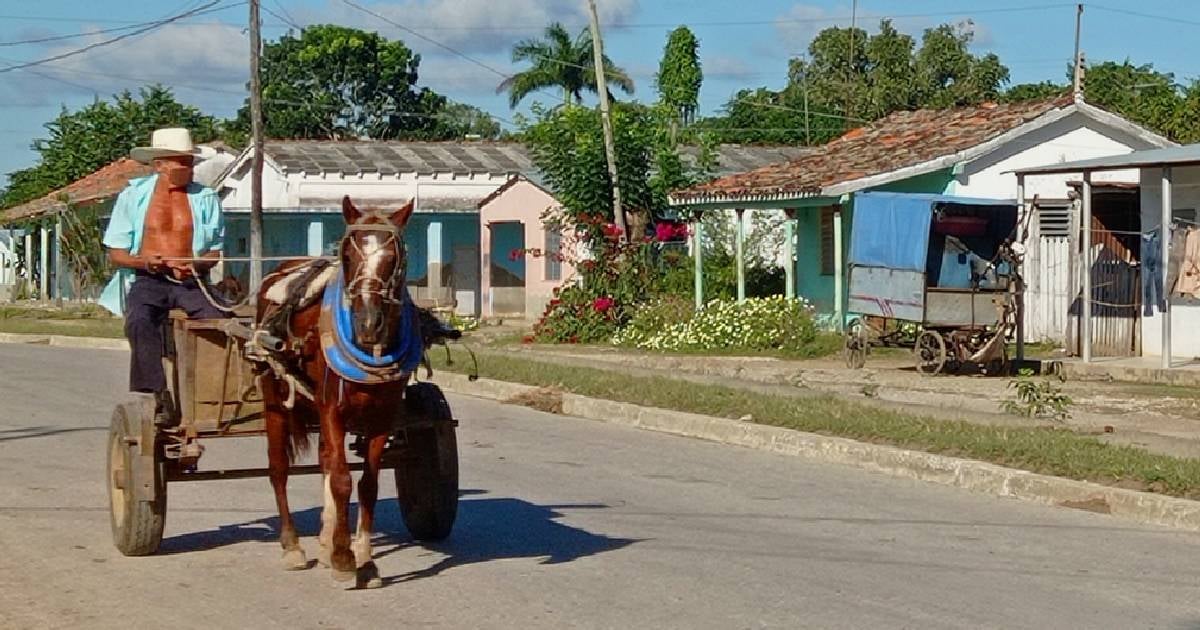In Cuba, a new Housing Law is under development, with plans to present the draft at upcoming sessions of the National Assembly of People's Power. Although the draft is still being written and its specifics remain unclear, during a session of the Agro-Food Commission preceding the Fourth Ordinary Period of Sessions of the Cuban Parliament, corresponding to the 10th Legislature, Cuban parliamentarians learned that the law aims to allow ownership of one house in the city and another in rural areas, as reported by the state-run newspaper Granma.
This proposed legislation seeks to adhere to the construction typologies approved by the Ministry of Construction (Micons) in 2017. The information was revealed during a presentation of the Program for the Attention to the Turquino Plan and Rurality in Cuba, attended by Cuban Vice President Salvador Valdés Mesa. During the event, Valdés Mesa acknowledged the severe deterioration of living conditions in rural areas, though he stressed the importance of defending the "achievements of the Revolution."
Housing is a critical issue in the daily life of Cubans, particularly because the government has not prioritized it, opting instead to focus on building hotels across the island. In June of this year, the National Assembly released the Migration legislative project to the public, including specific provisions for Cubans residing abroad who inherit properties in Cuba, even if they have been outside the country for over 24 months, sparking a heated debate.
According to the legislative text, Cubans living abroad are entitled to inherit properties in Cuba, regardless of how long they have been away. This topic is of significant interest to those living overseas and has been a persistent concern. The document clarifies that Cubans can retain inherited property in Cuba despite residing outside for more than 24 months, with no legal stipulations for automatic loss due to this reason.
Following this, the government imposed new restrictions on housing construction on lands granted in usufruct, as part of efforts to address what it describes as "irregularities in constructions on agricultural lands." As per Decree 105 of the Council of Ministers, published in the Official Gazette number 92 on September 23, the changes primarily impact farmers who received land parcels in usufruct and had built homes or made structural improvements.
The decree now prohibits building homes on several land categories, including those within urban perimeters, designated for territorial and urban planning, or earmarked for family self-sufficiency, and areas with environmental, defense, or national security considerations. The restrictions also extend to constructions on lands designated for agricultural or forestry development and other future projects. The Cuban regime argues that these measures aim to reorganize land use for planned development and safeguard areas intended for agricultural production.
The upcoming draft Law introduces a period of uncertainty as details of the regulations by authorities are still awaited. Nevertheless, projections suggest that changes regarding the number of properties allowed will not be significant, although the role of the state in this process remains to be seen.
Key Questions About Cuba's Housing Law
What is the main goal of the new Housing Law in Cuba?
The primary goal is to allow ownership of one home in urban areas and another in rural areas, adhering to construction typologies set by the Ministry of Construction in 2017.
How does the new law affect Cubans living abroad?
Cubans residing outside the country for over 24 months can still inherit and retain properties in Cuba, with no automatic forfeiture due to their extended absence.
What are the restrictions on housing construction under the new decree?
The decree restricts building homes on lands within urban perimeters, designated for planning, or with environmental and security concerns, among others, to reorganize land use for agricultural development.
